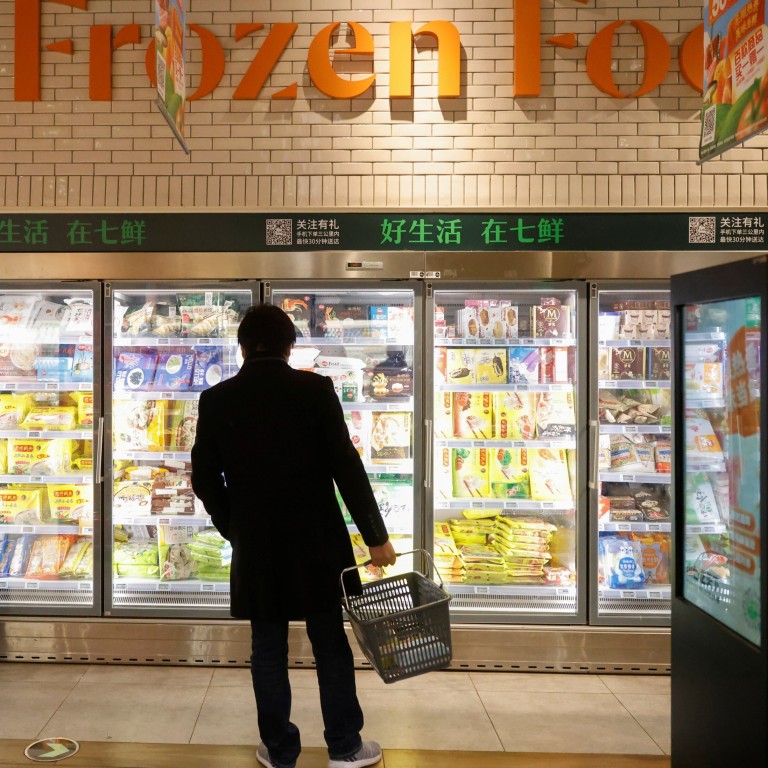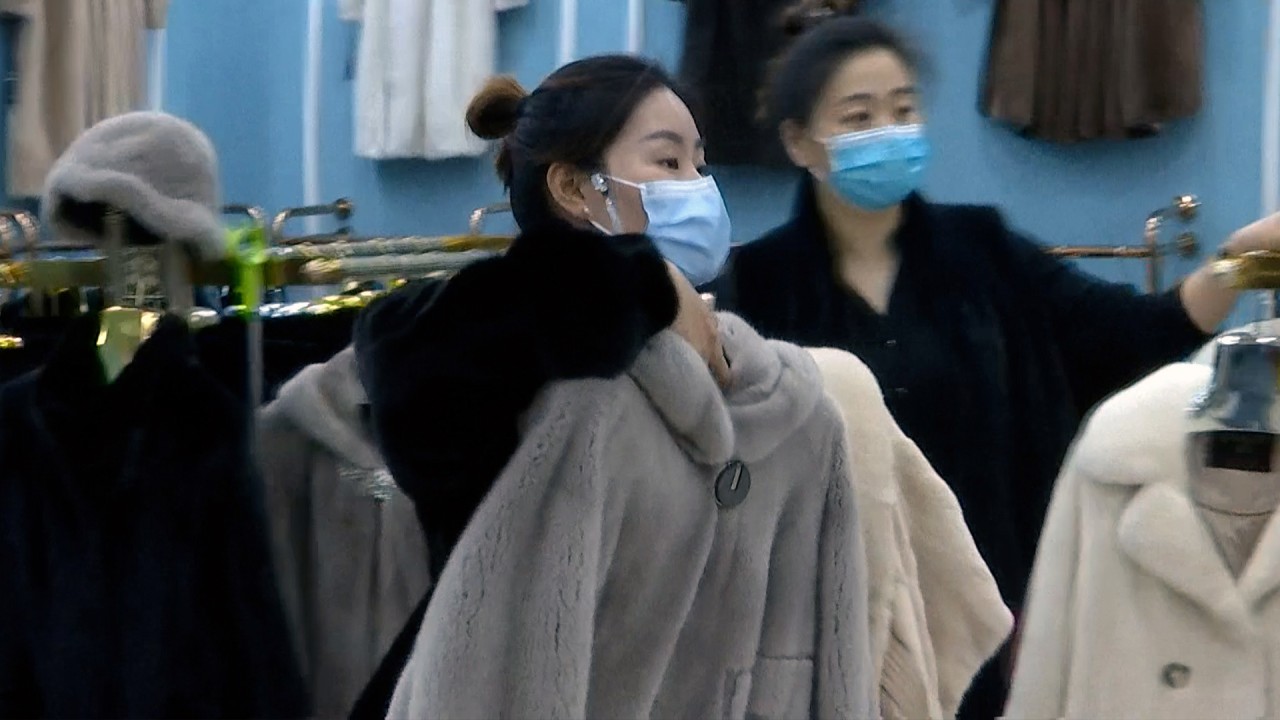
China’s coronavirus testing rules for frozen meats give importers a chill
- Companies report already-low margins are being squeezed further as they comply with stricter requirements, despite WHO advice
- Cases of imports contaminated with the virus continue to pile up and Chinese officials are taking no chances
China detected more than 40 batches of samples infected with the new coronavirus from more than a dozen countries between July and November, according to reports compiled by Reuters.
China to disinfect frozen food imports to curb coronavirus spread
Nationwide random inspections yielded positive tests just 0.48 times per 10,000, Li Ning from the National Centre for Food Safety Risk Assessment said last week.
The cases continue to pile in. On Tuesday, Chinese customs suspended beef imports from Argentine company Ecocarnes for one week after the new coronavirus was detected on its products. The company was also ordered to take emergency preventive measures.
Then, on Thursday, the detection of the virus on Brazilian pork leg led to the isolation of 55 workers at a logistics facility in Yuhuai, in the eastern province of Zhejiang.
Also on Thursday, officials in the city of Houma in Shanxi province, central China, detected traces of the new coronavirus on the packaging of imported frozen fish from Thailand. Local health authorities said the contamination was found before the product reached the market.
The World Health Organization said last month that although countries like China, Germany, the Netherlands and New Zealand had detected the virus on food packaging, it believed it was “highly unlikely” people could contract Covid-19 from food packaging.

01:20
Shanghai airport briefly overwhelmed by mass testing after cargo worker Covid-19 case cluster
But last month, according to Chinese authorities, a man did contract Covid-19 after handling frozen meat from Germany at Tianjin, the northern port city which receives a third of all China’s meat imports.
Liu Changyong, director of the Committee of Refrigeration Freezing Professionals, said in a Chinese media interview last month that some 2.176 million tonnes of frozen products arrived through Tianjin – worth 50.2 billion yuan (US$7.65 billion) – between January and September.
Last month China also ordered that frozen food imports, along with the vehicles that ship them, be disinfected to protect transport workers.
What is the status of China’s food security and why is it important?
China’s new measures added more uncertainty and cost in an already low-margin business, according to Darin Friedrichs, senior Asia commodity analyst for INTL FCStone Trading.
“If you import a cold storage container and it spends a month sitting at port, the electricity costs alone are a big concern. Add to that all the money tied up in testing, disinfecting and clearing it through customs, and it can become far more expensive than normal.”
In Europe, China’s stricter requirements and new random testing regime have left traders bracing for more uncertainty in a market already battered by domestic slowdowns related to Covid-19 and African swine fever, according to Duncan Wyatt, analyst at Britain’s Agriculture and Horticulture Development Board.
“The EU market is reported to be awash with pork, and pig prices have fallen quite a lot,” he said.
‘Turning point just around the corner’ for China’s devastated pig population
Despite having the world’s highest number of Covid-19 infections – at more than 14 million cases – US frozen meat exports have not tested positive for the coronavirus at China’s ports.
Joel Haggard, senior vice-president of the US Meat Export Federation’s Asia office in Hong Kong, said his organisation was not aware of any confirmed findings of virus materials found on US products in China. Nevertheless, the new requirements had negatively affected business.

01:33
Chinese fur industry feels impact of Europe’s cull of minks because of coronavirus outbreaks
“China’s Covid-19 testing and disinfecting procedures for imported cold-chain products slowed products getting from ports to consumers and dampened consumer interest in imported meat, poultry and seafood, though the impact is difficult to quantify,” he said.
“The US industry continues to concur with WHO and US Department of Agriculture expert assessments that there is a low probability that people can contract Covid-19 from food or food packaging, especially if the industry is practising effective personal hygiene measures to eliminate or reduce the risk of food surfaces and food packaging materials becoming contaminated with the virus.”
Haggard said the meat industry had invested hundreds of millions of dollars, following guidance issued by the US Centres for Disease Control and Prevention in the spring. Facilities had been re-engineered to improve worker distancing at plants and employees provided with personal protective equipment.

